#sir john middleton
Photo
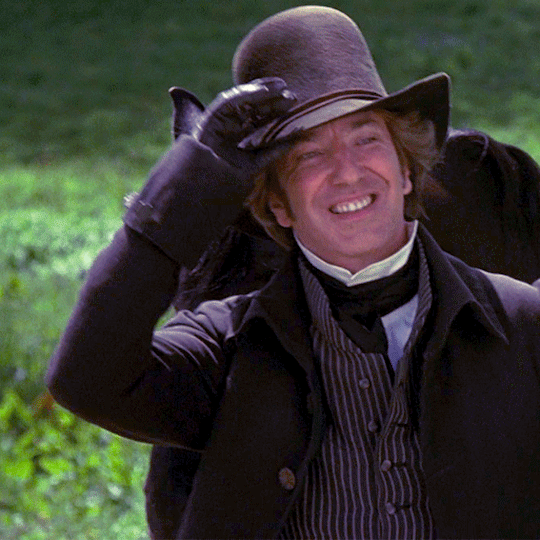

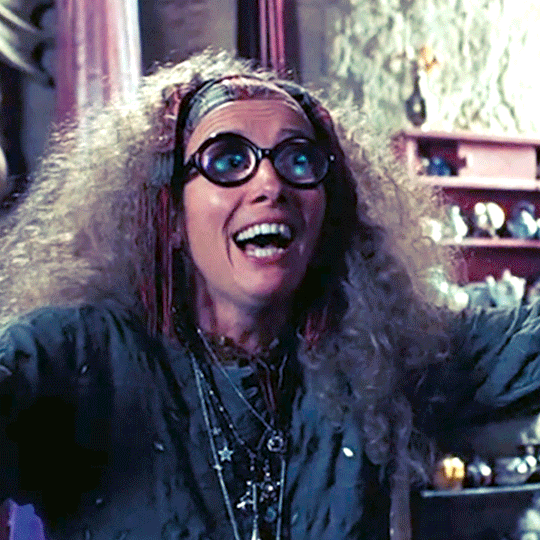
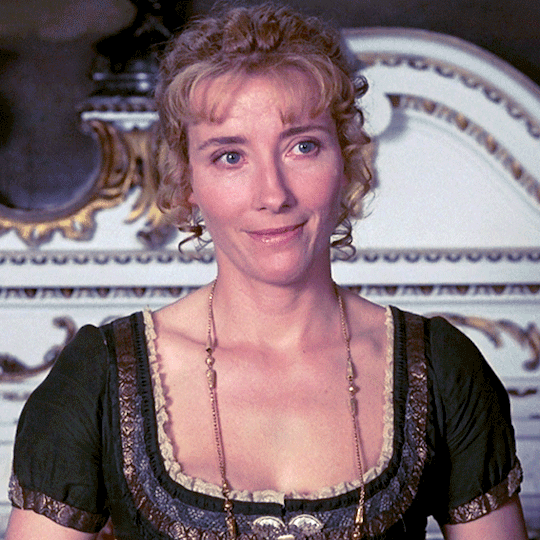
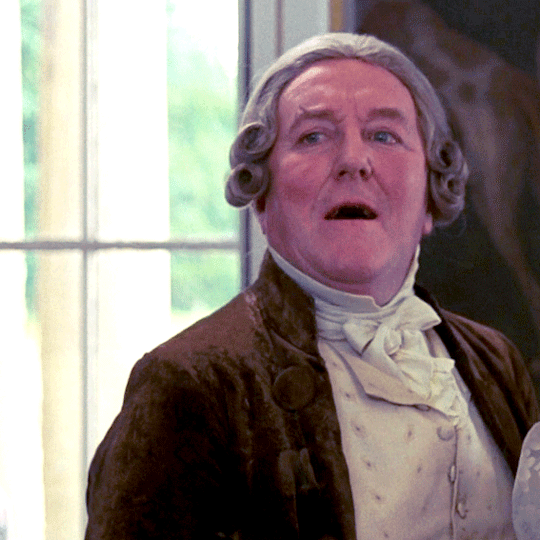
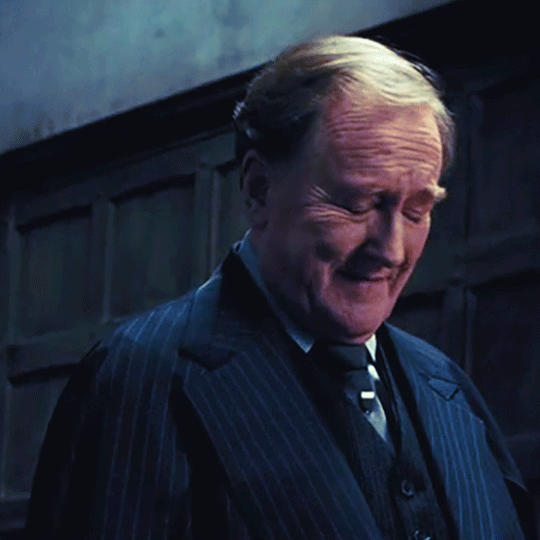
HP&TPOA vs S&S
#harry potter and the prisoner of azkaban#sense and sensibility 1995#severus snape#sybill trelawney#cornelius fudge#colonel brandon#elinor dashwood#sir john middleton#alan rickman#emma thompson#robert hardy#jane austen#gif
536 notes
·
View notes
Text
Sir John Middleton is DELIGHTFUL!
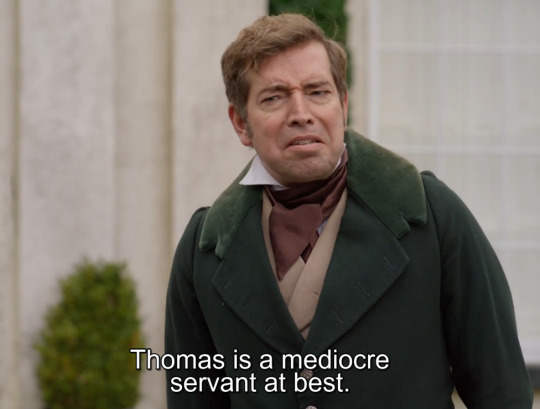

[Sir John: Tomas is a mediocre servant at best. I'm sure he won't be missed.]
Love him already.
16 notes
·
View notes
Text
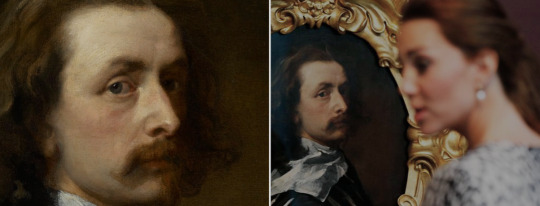
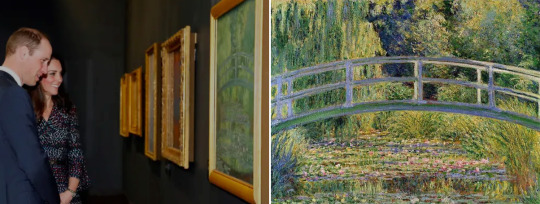
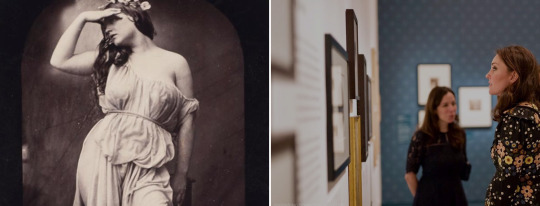

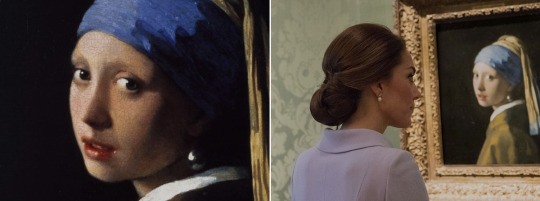
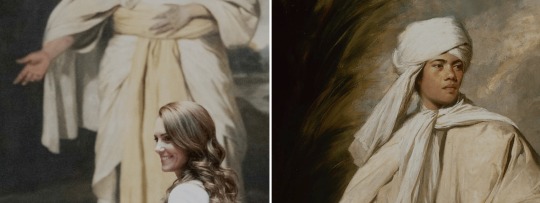
Catherine & Art || Self portrait by Sir Anthony van Dyck, The Japanese footbridge by Claude Monet, The evening sun by Oscar Rejlander, The miraculous draught of fishes by Raphael, The Girl with the pearl earring by Johannes Vermeer, Portrait of Omai by Sir Joshua Reynolds
"For me, the power of the images is in the poignant and personal stories that sit behind them" The Princess of Wales
#the fact that she wore pearl earrings to see “the girl with the pearl earring” is VERY Catherine lol#She just needs to visit some Bottecelli. Klimt. Van Gogh & John William Waterhouse now & this post would feel complete :) :) :) :)#i tried to + other art she's seen but it didn't look as aesth :/#Princess of Wales#Johannes Vermeer#Claude Monet#Sir Anthony van Dyck#Oscar Rejlander#Raffaello Sanzio da Urbino#BRF#British royals#British royal family#Royal family#Duchess of Cambridge#Kate Middleton#My edit#Collage#Art#Sir Joshua Reynolds
84 notes
·
View notes
Text
To myself, deciding what to watch: I heard Sense and Sensibility 2008 isn't great but surely it can't be that bad?
Literally two minutes into the movie: .....never mind
#nina has thoughts#sense and sensibility 2008#truly it is um not great#who the fuck deicded the dashwoods would be doing their own chores??#it's in the book - they still keep a couple of servants#genteel poverty dammit#also sir john middleton is not upbeat enough#and mr edwards ferrars not awkward enough#also why would you start the miniseries with a sex scene????
5 notes
·
View notes
Text
Austen brOTPs
I did polls for best and worst Austen sibling duos, so how about the non-sibling and non-romantic duos?
Again, please vote by book depiction, not movies.
In alphabetical order by last name for fairness, so read the whole list first before you vote!
I have a silly version of this poll with inanimate objects and concepts that you should vote in too!
#i think i'll do a run-off poll after this to find the ultimate austen duo out of all my duo polls#jane austen characters#jane austen#polls
75 notes
·
View notes
Text



─ •✧ CATHERINE'S YEAR IN REVIEW : FEBRUARY ✧• ─
1 FEBRUARY - Catherine appeared in a video for Shaping Us Campaign.
2 FEBRUARY - Catherine appeared in a video with Roman Kemp as part of the Shaping Us Campaign.
4 FEBRUARY - Kensington Palace released a childhood photo of Catherine with Michael Middleton for the Shaping Us Campaign.
5 FEBRUARY - She visited St. John's Primary School to mark the start of Children's Mental Health Week 2023.
8 FEBRUARY - Catherine was received by His Majesty's Lord-Lieutenant of Derbyshire (Mrs. Elizabeth Fothergill) as she visited Landau Forte College along with Captain Harpreet Chandi.
9 FEBRUARY - Catherine and William were received by His Majesty's Lord-Lieutenant of Cornwall (Colonel Edward Bolitho) at the National Maritime Museum Falmouth in Discovery Quay. Afterwards, they visited the Dracaena Centre.
19 FEBRUARY - Catherine and William attended the British Academy Film Awards at the Royal Festival Hall where and were received by His Majesty's Lord-Lieutenant of Greater London (Sir Kenneth Olisa).
21 FEBRUARY - She was received by His Majesty's Lord-Lieutenant of the Royal County of Berkshire (Mr. James Puxley) at the Oxford House Nursing Home in Slough.
22 FEBRUARY - Catherine held an Early Years Meeting.
23 FEBRUARY - Catherine received Mr. Ian Hewitt (Chairman, AELTCC ) at Windsor Castle. Subsequently, she received Major General Christopher Ghika and Lieutenant Colonel James Aldridge (Regimental Lieutenant Colonel & Commanding Officer) of the Irish Guards.
25 FEBRUARY - Catherine and William met the volunteers and staff of the Welsh Rugby Charitable Trust and attended the Six Nations Rugby Match between Wales and England at the Principality Stadium in Cardiff. They were received by His Majesty's Lord-Lieutenant of South Glamorgan (Mrs. Morfudd Meredith).
28 FEBRUARY - Catherine and William were received by His Majesty's Lord-Lieutenant of West Glamorgan (Mrs. Louise Fleet) at Brynawel House Alcohol and Drug Rehabilitation Centre in Pontyclun. Afterwards, they visited Aberavon Celtic Leisure Centre, where His Majesty's Lord-Lieutenant of Mid Glamorgan (Mr. Peter Vaughan) received them. Subsequently, they were received by His Majesty's Lord-Lieutenant of Dyfed (Miss Sara Edwards) as they opened the new patient room at Wales Air Ambulance in Dafen.
#year in review 2023 : catherine#year in review : 2023#year in review : catherine#catherine review : february#review 2023#review february#british royal family#british royals#royals#catherine middleton#kate middleton#royal#british royalty#royalty#brf#duchess of cambridge#princess of wales#the princess of wales#princess catherine#princess kate#royaltyedit#royalty edit#my edit#prince of wales#the prince of wales#prince william
68 notes
·
View notes
Note
WHO HAD A SECRET RELATIONSHIP WITH WHOM?!
@miraculoushedgehog replied to your post: I need this info on 81’ Thomas 😂
In Sense and Sensibility 1981, the servants of Barton cottage are not ones coming with the Dashwoods from Norland; whether sir John sent them or they are just a fixture of the place, the series doesn't tell us, but they do get a grand introduction:
Thomas, who is doing some gardening as he awaits the Dashwoodses, with as much or more enthusiasm as Mr Collins' noticing Lady Catherine's carriage, tells the maid when he sees the carriage:

Darcy cannot fix the hour or the spot? Skill issue. This man certainly can, as he ran inside, put on a coat and proceeded to greet them:
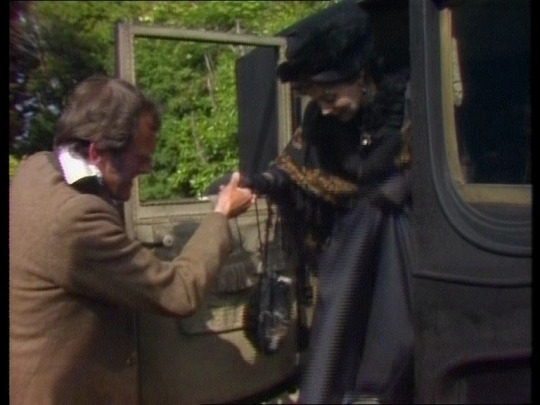
What a meet cute! Ma Dashwood is not at all displeased:
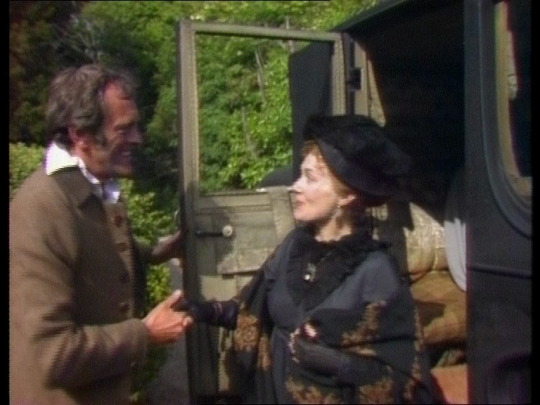
She has not withdrawn her hand! she smiles at him!
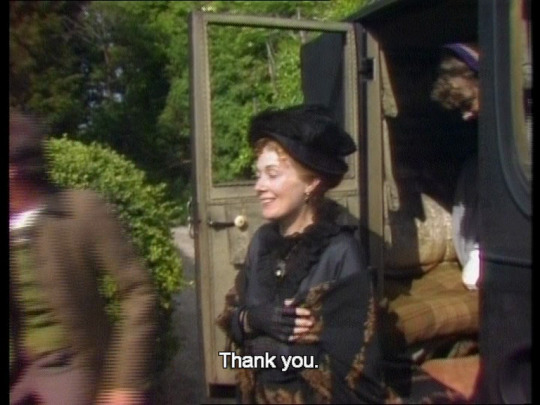
I know who this woman was voting for on that tournament.
Once she moves past him, he pointedly looks at her as she makes her way to the front door, and then adds:

He introduces Susan, and then:

He's taken with her!
You'd say, Scarlet, you are reading too much into this! these are just some perfunctory introductory lines!
Well, you are wrong, because this sequence hasn't ended yet! I'm tempted to think this is the servant character with the most lines in any Austen adaptation. Which reinforces my theory that this is done ON PURPOSE :P
He shows her the different rooms, and then:


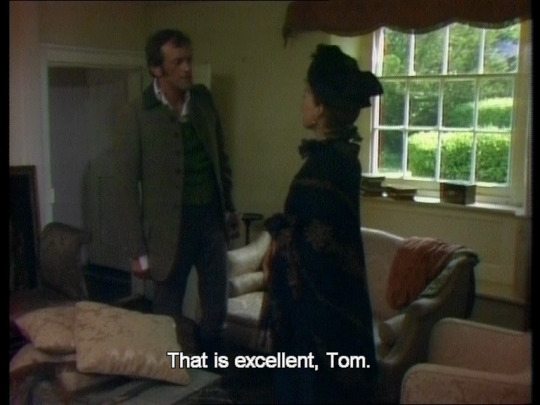
He smiles at her approval, and clearly attempts to prolong their conversation with:
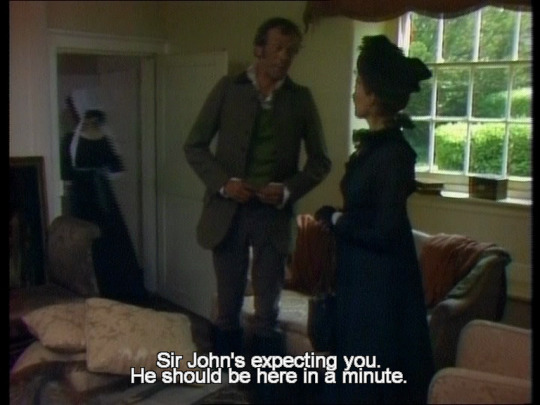

Realizing perhaps this is pushing his luck, as she doesn't answer, he adds:

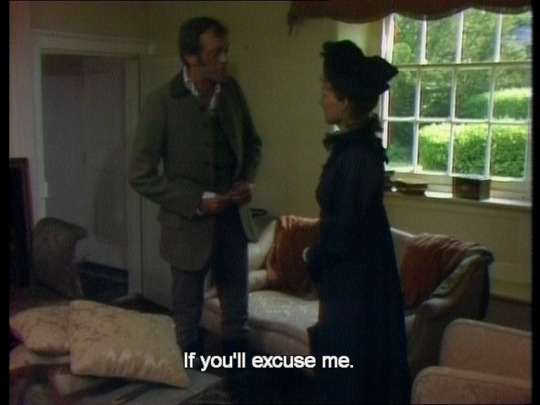
This is not the last time we see him in this very episode, as he comes in to assuage Lady Middleton's fears that her son might be injured, and informing all that only his cucumber frame has been destroyed, showing with that his great presence of mind.
Episode 2. Tom, who introduced himself last episode as doing gardening and odd jobs, has been ascended to doorman:
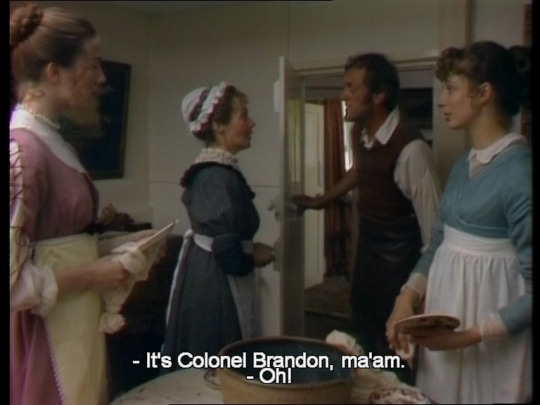
After we meet Willoughby, the same way Andrew Davies treated us to some wet shirt Edward, we are treated to some Tom doing physical labour, clearly highlighting how romance is blossoming in parallel between so similar a mother and a daughter:
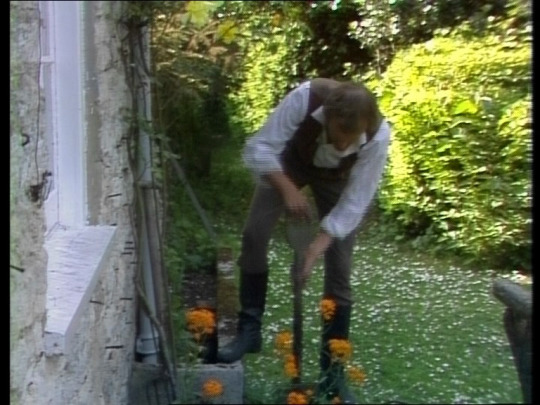
He stops to listen to Marianne and Willoughby sing a song:
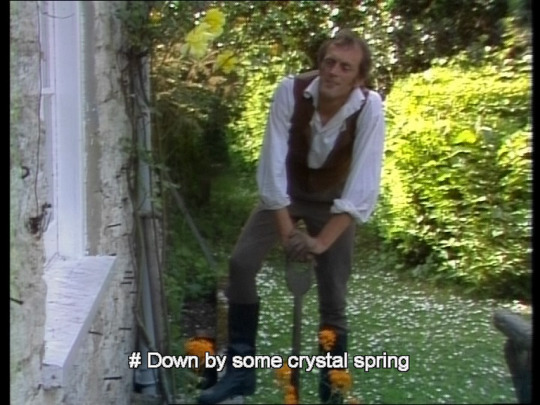
The face of a man in love!
The Queen Maab scene follows this one, and then, as Marianne and Willoughby are singing again another day, what do we see first as background to their singing?
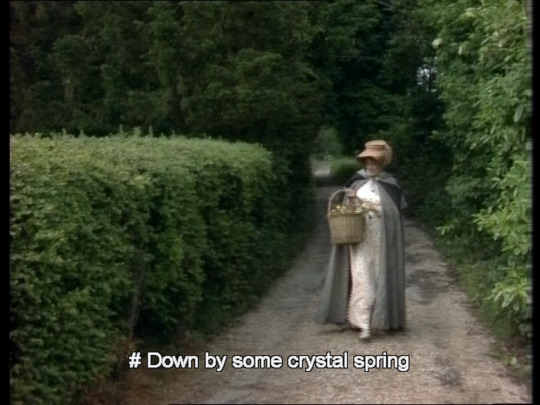
Ma Dashwood! Carrying flowers! This is such an obvious yet subtle romantic parallel. This is the kind of soft romantic storytelling I'm here for.

That's Willoughby's carriage as he's brought back Marianne from Allenham. Would Thomas be complete if he didn't love horses?
Episode 3: We open with some Thomas working in the background:
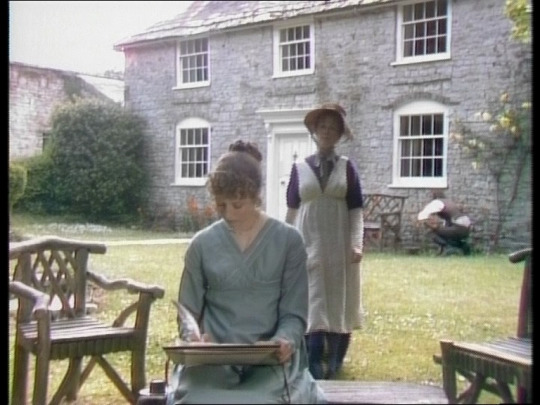
So that we not forget his real relevance in this story's subtext.
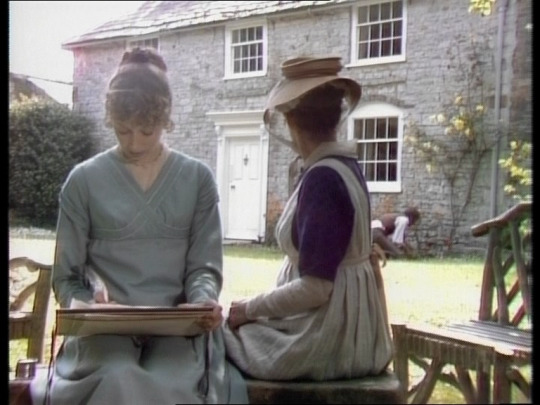
Ma Dashwood not even trying to be subtle.
Another Tom cameo:
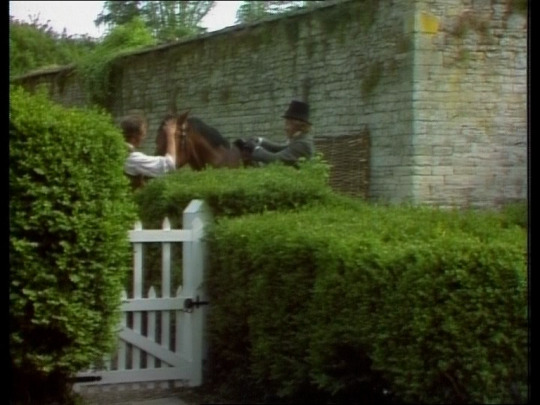
And another:
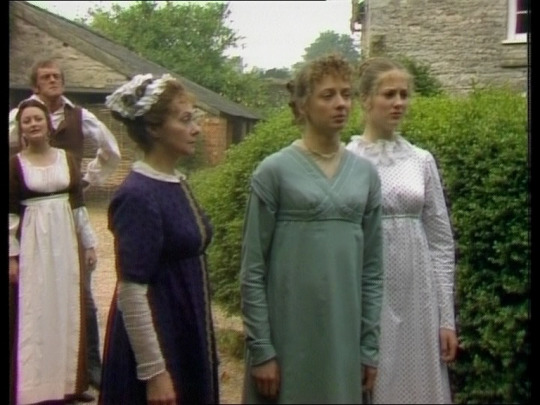
Ma Dashwood's reaction upon hearing that Mrs Jennings has invited Elinor and Marianne to go to London with her:
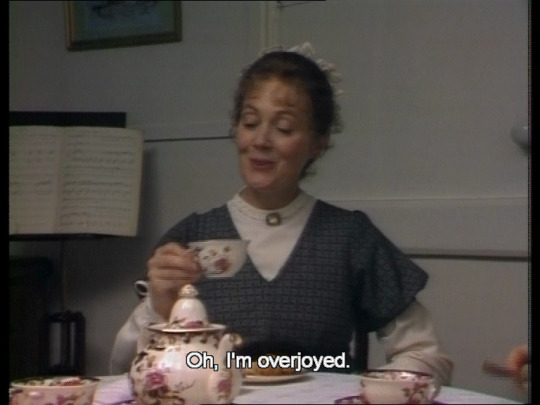
It is worth mentioning that in this adaptation, there's no Margaret. Ma Dashwood is not sick. There's absolutely no reason for her not to be invited, so why didn't Mrs Jennings invite her? Well, of course, because with her nose for romance she's sniffed her secret out! Ma Dashwood does then demolish all Elinor's objections, is truly overjoyed at the idea of being left behind, and explicitly mentions her having Tom and Susan with her as a reason for Elinor and Marianne to go with a clean conscience.
Ma Dashwood's face after her daughters leave the room:
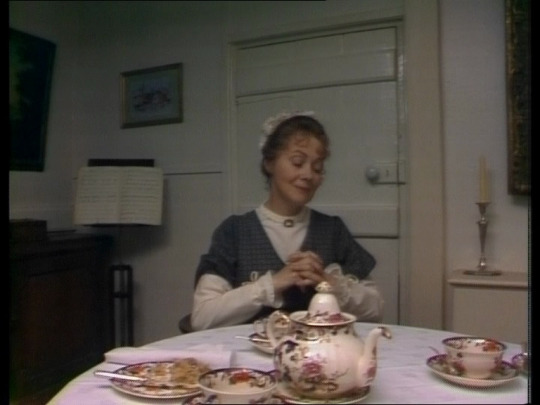
During episodes 4-5, the series of course focuses on our main heroines in London and Cleveland, leaving us to imagine the full blossoming of this romance happening at Barton cottage, and all the angst and heartbreak that their class separation imposes on these middle aged lovers. Ma Dashwood may be a romantic, but she understands that her daughters come first.
As soon as we return to Barton in episode 6, so returns our favorite gardener-doorman-oodjobman Tom! Without seeing him, Ma Dashwood recognizes his way of shutting the front door, and calls his name, and then smiles at his answering:

♪ So this is love... ♫ (notice Elinor drawing Edward's portrait)

(Then we get the "Thomas tells them Mr Ferrars is married" scene)
Then this scene follows:
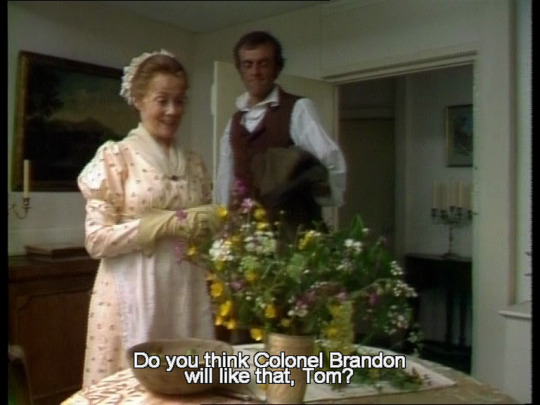

It's a really clever piece of writing, where the writers both show us the grown intimacy, respect and appreciation between them, and give us a nice metaphor, where the flowers of the hedgerow, that represent Tom, are picked by Ma Dashwood, beautiful in her eyes, and made fit for polite society. Alas, the crucial question remains: how can they love be, without ruining Marianne and Elinor's prospects?
As we all know, Edward comes and proposes to Elinor, and marries her. We are then treated to a visit of colonel Brandon, where Ma Dashwood sees how much Marianne's feelings and attitudes towards the colonel have changed.
The last line and frame of the adaptation belongs to Ma Dashwood:
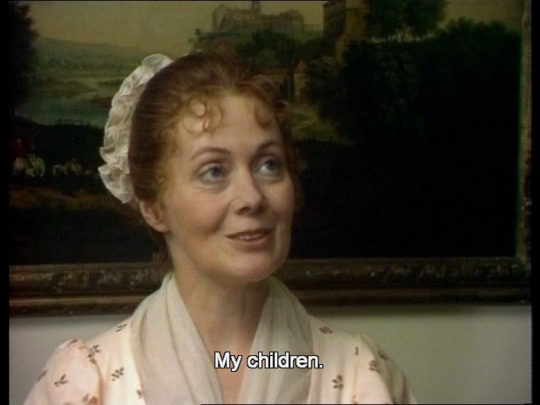
That would, to any distracted viewer, seem very odd. Why that? And why that line? But for the attentive viewer who has been able to piece together the little drama behind the curtains, it's patently clear: she has realized that Marianne will marry Brandon, and once that happens, she will be free to have her own second happily ever after herself, with Tom, the gardener of her heart.
#ask#kajaono#Jane Austen#Sense and Sensibility#Sense and Sensibility 1981#humor#things people are missing out on by not watching the older adaptations :P
42 notes
·
View notes
Text
Austenian Dads
A recent post about mothers-in-law by @bethanydelleman had me thinking about the dads in Jane Austen. We get a lot of discourse about mothers and mother figures, who have big, important roles in the stores, but her depictions of fatherhood are interesting too. Here, in my opinion, are the dads and dad-like figures in her novels, ranked from best to worst.
(note: I've left out deceased and barely-there dads, but I will note that Mr. Dashwood's attempt to look out for his daughters, and the amount of grief occasioned by his death, indicate that he is a Top Dad.)
Mr. Musgrove - Notwithstanding "poor Richard", Mr. Musgrove has three reasonably well-adjusted adult children, seems to love his younger children, and goes to his daughter's bedside when she is injured. His children all make Sensible Matches, and he likes kids enough to permit the little Harvilles to be brought back to Uppercross to increase its noise. He folds my beloved Anne into his family and treats her affectionately whenever she is with them. By the standards of the day, he seems pretty solid. 8/10 Least Bad Dad.
Sir John Middleton - Like Mr. Musgrove, Sir John is a people person. His immediate and unreserved adoption of the Dashwoods in their hour of need tells us that he is an unambiguously good-hearted person, which usually leads to loving parenting. His kids are young so we don't see him interacting much with them, but his desire to give everyone a nice time bodes well. He doesn't notice when his teasing goes to far. 7/10 definitely tells the same dad joke over and over.
Mr. Bennet - As a reader I love him because he's pithy, but he's honestly not a great dad, and is not modeling a happy marriage for his daughters. He shows favouritism to Lizzy, lets Lydia run wild, is hurtful towards Mary and Kitty, and fails to save up any money to bribe worthless young men to marry his daughters. 5/10 for putting all his eggs in the "having a son" basket and then doing nothing when the handle on the basket breaks.
Lt. Price - Loud, embarrassing, shiftless. Ignores his daughters but seems to maybe do OK with his sons? 3.5/10, tops.
Sir Walter Elliot - This fucking guy, am I right? He's vain, he's self-obsessed, he's a spendthrift, and he's a dreadful parent. His eldest daughter is his favourite and he basically forgets Anne and Mary exist when they're not directly in front of him (and sometimes doesn't notice them even when they are). His favouritism has damaged Anne and Mary in different ways to Mr. Bennet's to his younger daughters, but the source is the same: he has one child who is like him and others that he doesn't click with, so he basically lets them shift for themselves. In the Elliot household I'm certain this means that sensitive Anne was left to grieve her mother without any comfort from her father. It's no wonder she was ready to marry the first loving man she saw. When he sees her looking well, he thinks it's down to her skin care regimen. 3/10 merely Gowland's.
Sir Thomas Bertram - Poor Fanny, her father figures are both the pits. Sir Thomas knows absolutely zero about what any of his kids are like and can't see how bad Aunt Norris's influence is on all of them. He swings wildly between neglectful and overbearing, and then tries to pressure Fanny into marrying Henry Crawford despite his attentions making her visibly miserable. He also knows perfectly well that Fanny is shy, and yet does not give her any warning that he's throwing a ball for her coming out, plus he sends her home to Portsmouth as a sort of weirdo punishment to make her see what she's missing by not marrying Henry. 2/10 points and he really only gets these for 1. offering to free Maria from her engagement and 2. getting a fire in Fanny's grate, even if he left it until WAY too late to do her much good.
General Tilney - the closest Austen gives us to a villainous parent. The General is dictatorial to his children, oppressive around the house and occasionally creepy towards Catherine. This is made apparent by the fact that the Abbey suddenly becomes much more fun when he goes off to London. He shows himself the ultimate Bad Dad by tossing his daughter's friend out of the house without explanation and hardly the resources to get herself home. 0/10 Gothic Tyrant Dad.
#jane austen#dads#pride and predjudice and zombies#persuasion#northanger abbey#sense and sensibility#mansfield park
137 notes
·
View notes
Photo
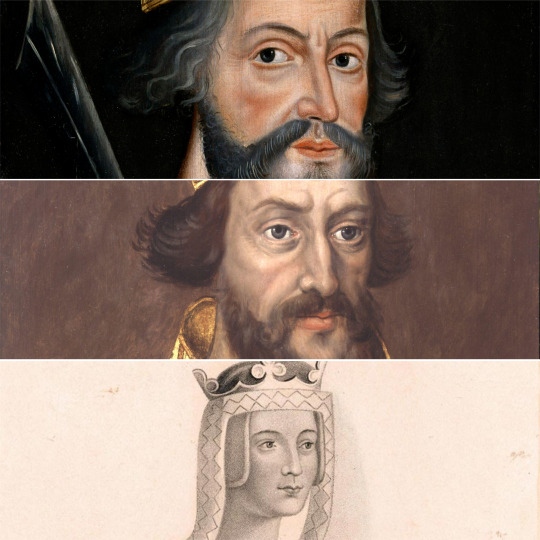
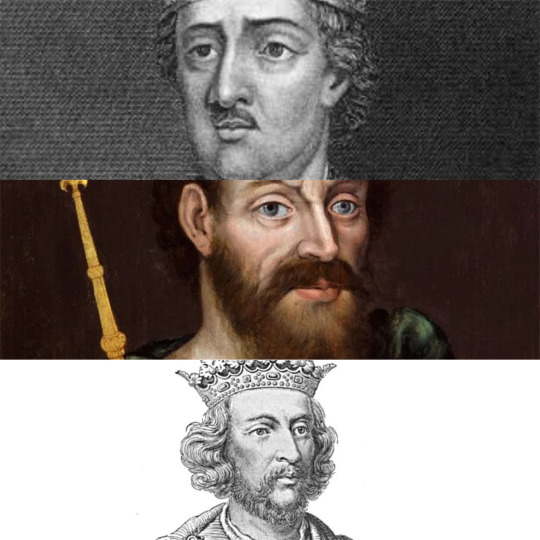

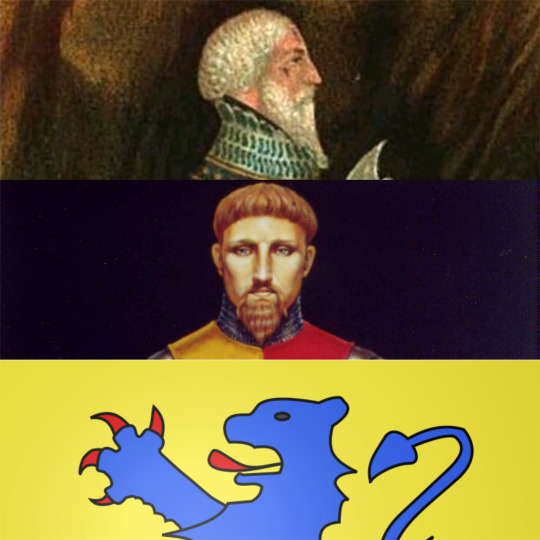


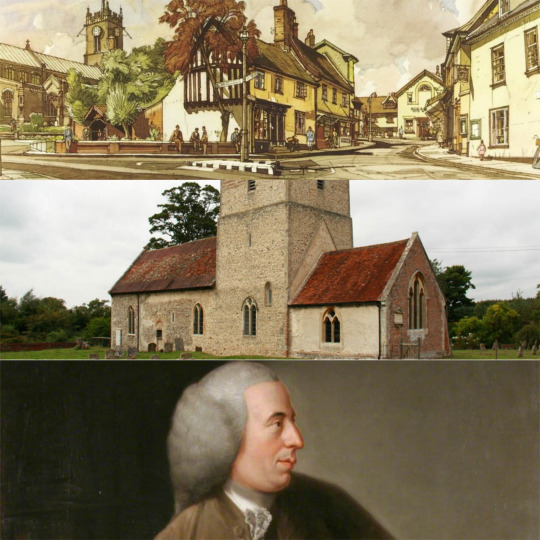
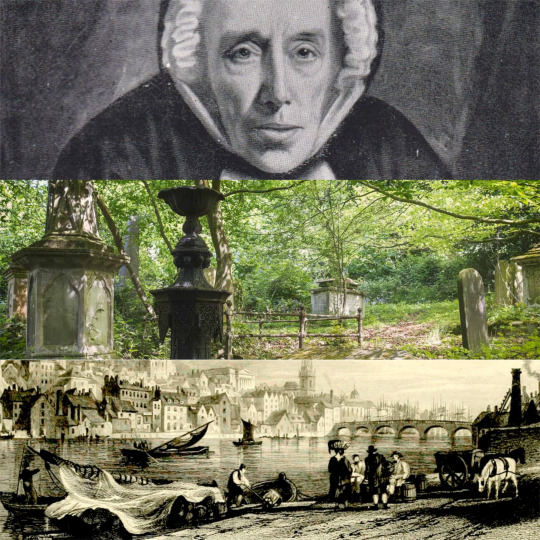
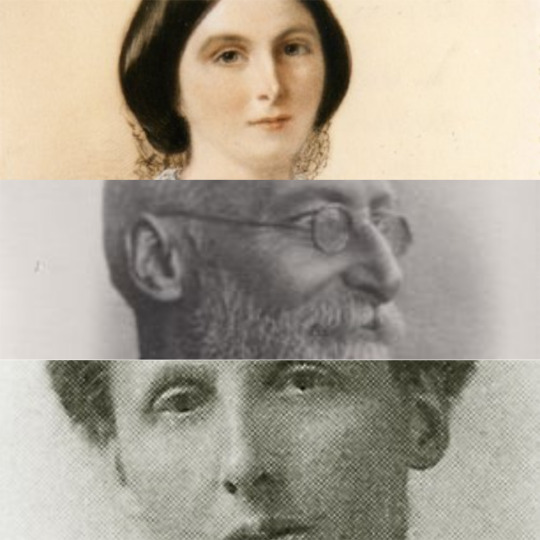

William, The Conqueror to Catherine, The Princess of Wales
⤜ The Princess of Wales is William I's 27th Great-Granddaughter via her paternal grandfather’s line.
William the Conqueror (m. Matilda of Flanders)
Henry I, King of England (m. Matilda of Scotland)
Empress Matilda (m. Geoffrey V, Count of Anjou)
Henry II, King of England (m. Eleanor of Aquitaine)
John I, King of England (m. Isabella of Angoulême)
Henry III, King of England (m. Eleanor of Provence)
Edmund, Earl of Lancaster (m. Blanche of Artois)
Henry, 3rd Earl of Leicester and Lancaster (m. Matilda de Chaworth)
Mary of Lancaster, Baroness Percy (m. Henry de Percy, 3rd Lord Percy) - Coat of Arms
Sir Henry Percy, 1st Earl of Northumberland (m. Margaret de Neville)
Sir Henry ‘Hotspur’ Percy (m. Elizabeth Mortimer)
Sir Henry Percy, 2nd Earl of Northumberland (m. Lady Eleanor Neville) - Coat of Arms
Sir Henry Percy, 3rd Earl of Northumberland (m. Eleanor, Baroness Poynings) - Coat of Arms
Lady Margaret Percy (m. Sir William Gascoigne)
Agnes Gascoigne (m. Sir Thomas Fairfax) - Gawthorpe Hall, family seat.
William Fairfax (m. Anne Baker) - Gilling Castle, family seat.
John Fairfax (m. Mary Birch) Master of the Great Hospital at Norwich, Norfolk
Rev. Benjamin Fairfax (m. Sarah Galliard), Preacher at Rumburgh, Suffolk.
Benjamin Fairfax (m. Bridget Stringer) died in Halesworth, Suffolk.
Sarah Fairfax (m. Rev. John Meadows) died in Ousedon, Suffolk.
Philip Meadows (m. Margaret Hall)
Sarah Meadows (m. Dr. David Martineau)
Thomas Martineau (m. Elizabeth Rankin) buried at Rosary Cemetery, Norwich.
Elizabeth Martineau (m. Dr. Thomas Michael Greenhow) died in Newcastle upon Tyne, Northumberland.
Frances Elizabeth Greenhow (m. Francis Lupton)
Francis Martineau Lupton (m. Harriet Albina Davis)
Olive Christina Lupton (m. Richard Noel Middleton)
Peter Francis Middleton (m. Valerie Glassborow)
Michael Francis Middleton (m. Carole Elizabeth Goldsmith)
The Princess of Wales m. The Prince of Wales
#this took wayyy to long#princess of wales#william the conqueror#history#ancestry#pictures#people#brf#british royal family#empress matilda#henry ii#henry i#john i#king of england#henry iii#hotspur#KTD
84 notes
·
View notes
Text
Shakespeare Weekend
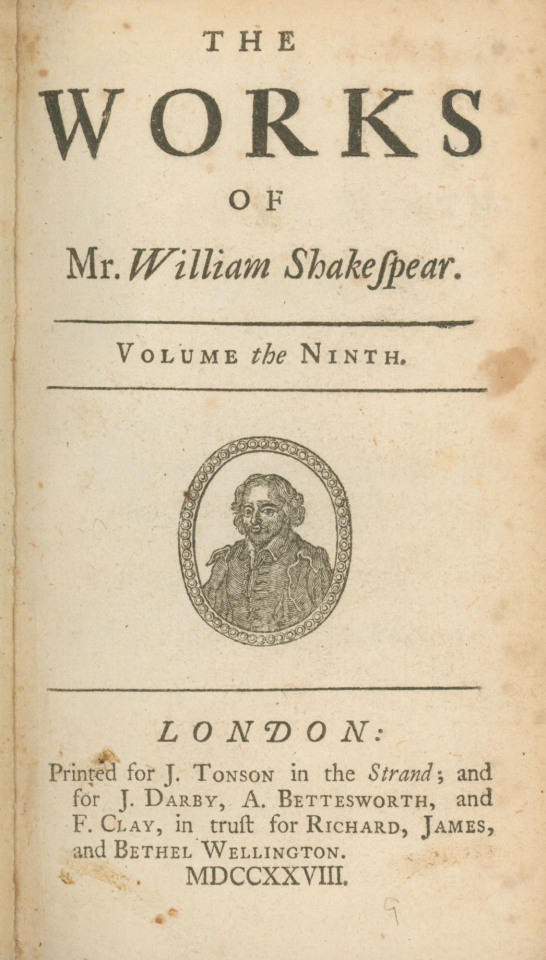
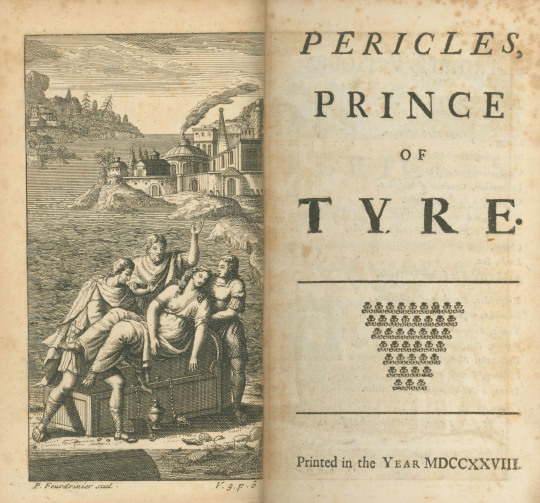
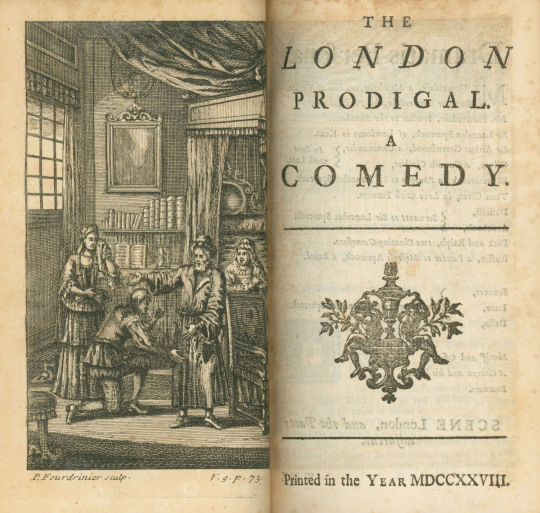
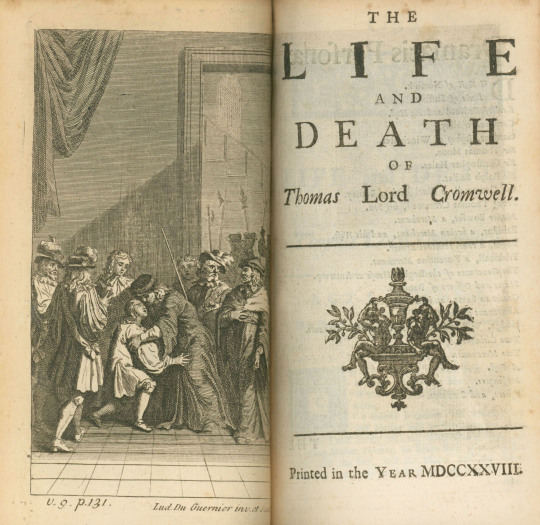

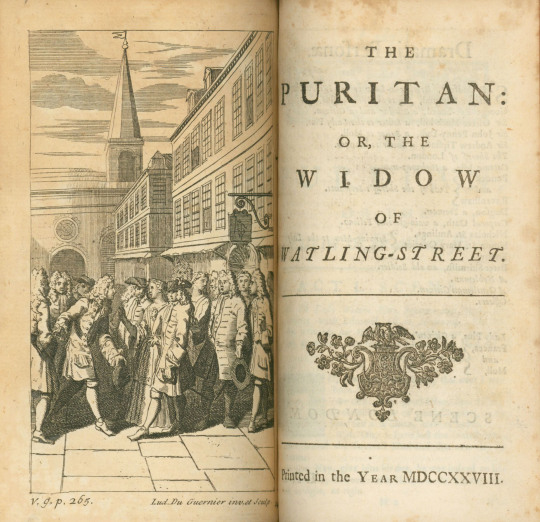

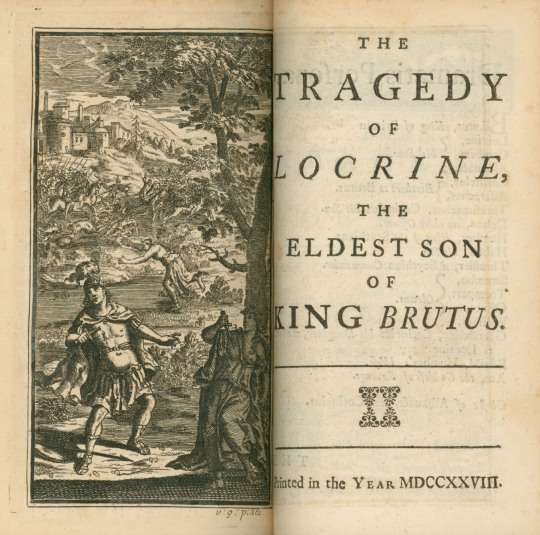
The ninth volume of The works of Mr. William Shakespear: in ten volumes published in 1728 by Alexander Pope (1688-1744) and Dr. George Sewell (d. 1726) for Jacob Tonson (1655-1736), is considered a supplementary volume added to the collection in the second edition. As previously mentioned, Volume 9 includes the additional booksellers of C, A. Bettesworth, and F. Clay, in Trust for Richard, James, and Bethel Wellington. Scene divisions, stage directions, dramatis personae, and full-page engravings by either French artist Louis Du Guernier (1677-1716) or Englishman Paul Fourdrinier (1698-1758) precede each play.
The volume contains seven plays; Pericles, Prince of Tyre, The London Prodigal, Thomas Lord Cromwell, Sir John Oldcastle, The Puritan, A Yorkshire Tragedy, and Locrine. Thematically the plays span genres ranging from comedy, tragedy and history, but they all share the same underlying question over authorship. The plays were originally attributed to William Shakespeare due to “Written by W.S.” appearing on the title pages of early quartos. Scholars have since argued that the “W.S.” could alternatively credit dramatists and Shakespeare contemporaries Wentworth Smith or William Sly, and historians now attribute Sir John Oldcastle and A Yorkshire Tragedy to prolific Jacobean playwright Thomas Middleton.

Except it's not the last volume, there's one more supplemental volume left that we'll look at next week!
View more Shakespeare Weekend posts.
-Jenna, Special Collections Graduate Intern
#william shakespeare#shakespeare#shakespeare weekend#the works of mr. william shakespear in ten volumes#alexander pope#dr. george sewell#jacob tonson#louis du guernier#paul fourdrinier#wentworth smith#william sly#thomas middleton
16 notes
·
View notes
Text
New Year's Resolutions for Jane Austen Characters (mid-novel) Part 2
George Wickham: Marry a heiress. Stop gambling lol, as if, that's what marrying the heiress is for.
Lady Catherine: Convince Darcy to follow through with his duty and honour of marrying my daughter Anne. Learn pianoforte
William Collins: Continue in the esteem of my patroness, Lady Catherine de Bourgh in order to secure additional livings. My wonderful partner in life joins me in this goal.
Charlotte Collins: Convince husband to spend as much time in the garden as possible. Secure extra livings in order to gain more Mr. Collins-free time.
Georgiana Darcy: Practice harp at 10am sharp every day until fingering improves
Mrs. Jennings: Marry off every eligible girl within sight, beginning with the Miss Dashwoods.
Fanny Dashwood: 1. Suck up to mom to secure inheritance 2. Keep Edward & Elinor apart at all costs, 3. Hang out with this Steele girl to make Elinor jealous
John Willoughby: 1. Marry an heiress before my entire life explodes 2. Worm my way back into Mrs. Smith's good graces. 3. Marianne???
Sir John Middleton: 1. Go hunting 2. Host parties and balls 3. Make sure my tenants in Barton cottage are happy (Not actually goals, just what he does anyway)
Lady Middleton: Maintain the propriety of my great house and title while spoiling my children
John Thorpe: 1. Marry that rich heiress I so cleverly secured 2. Buy and sell horses for extravagant prices 3. Attend Belle & James's wedding (If I have time)
Isabella Thorpe: ❤️❤️❤️ Marry Captain Frederick Tilney ❤️❤️❤️
Jane Fairfax: *hands back the paper blank and blushes*
Frank Churchill: MARRY THE LOVE OF MY LIFE JANE FAIRFAX um, some girl I know. Don't tell my aunt, please
Mr. Elton & Mrs. Elton: keep being the hottest couple in Highbury *high five*
Dr. Grant: Eat a lot of yummy dinners (same goal since he was born)
Julia Bertram: Catch a better husband than Maria Keep partying with Maria
Mrs. Price: hire better servants, have Rebecca fix that carpet... I really have the worst servants in Portsmouth, it's a tragedy... (we cut off her complaints here)
William Price: MAKE LIEUTENANT
Sir Thomas: Finally figure out how to make Tom stay at home and do his duty as the eldest son. All the other kids are doing very well so I have nothing to improve there.
Sir Walter: There is nothing I would ever change about the amazing person that is myself.
Elizabeth Elliot: Marry Mr. Elliot and reestablish myself as the mistress of Kellynch
Lady Russell: encourage Anne to marry Mr. Elliot, read all new poetry publications
Mr. Elliot: Keep Sir Walter from marrying that vile seductress so I stay in the line of succession
Mrs. Clay: Marry Sir Walter, at all costs
Part 1
#jane austen#mansfield park#pride and prejudice#northanger abbey#sense and sensibility#persuasion#emma#happy new years#new years resolution
128 notes
·
View notes
Note
Austen asks! 4-24
I don't know if you intended this to be inclusive, but I'll answer them all anyway (skipping over the ones that have already been answered).
6. Favorite movie adaptation
The 1995 Sense and Sensibility. To me, it strikes a good balance between being a good adaptation and making the story accessible to audiences that haven't read the book, and it's one of the few that seems to understand Austen's humor and romance.
7. Favorite Austen couple
Anne and Wentworth. Their personalities balance each other perfectly.
8. Least favorite couple
Colonel Brandon and Marianne are so frustrating to me, mostly because of how Austen writes them. They fall victim to the Marian Halcombe Problem--if you spend the whole book showing a man and woman having tons of conversations and developing a good dynamic as equals, I'm not going to believe that he's in love with her sister.
9. Most hated foe of a heroine
Isabella Thorpe is a terrible person, and I can't think of any redeeming qualities or circumstances.
11. Least favorite book
I gained a better appreciation for Sense and Sensibility on my last reread, but it's still definitely Austen's weakest novel.
12. Least favorite Austen heroine
Marianne Dashwood is a realistic teenager, but not someone that I can admire or sympathize with too much.
14. Favorite love confession from the books
Can any Austen fan say anything other than The Letter in Persuasion?
16. Least favorite film adaptation
I hold a grudge against the 2005 Pride and Prejudice, because it did nothing to make me understand the appeal of Austen, and it's a horrible adaptation, but it has such a huge influence on fandom's interpretation of the novel.
Also, every once in a while, I remember the scene in the 2008 Sense and Sensibility where Brandon gives Willoughby a "stay away from my daughter" speech, and I shudder over how creepy it is.
17. Moment that made you sad/cry while reading
Basically any scene of Fanny Price's childhood.
18. Moment that made you smile/happy while reading
Henry Tilney's introduction scene in Northanger Abbey is just pure distilled joy.
19. Moment that made you laugh while reading
I'll never forget the time I laughed out loud in class while reading one of Miss Bates' speeches in Emma.
20. Moment that made you mad while reading
I don't know if I've ever been so mad for a heroine as I was during the scene where the neglected poor, orphaned, outsider Fanny watches everyone fawn over poor, orphaned outsider Mary Crawford.
22. Favorite Austen female casting decision
I love Tamsin Greig as Miss Bates in the 2009 Emma, because I did not imagine her talkativeness as stemming from anxiety, but it was fun to see her played that way and to experience a different interpretation that still felt valid.
I'm also going to take this opportunity to mention that I love Mrs. Jennings and Sir John Middleton in 1995's Sense and Sensibility. I just grin through every scene they're in, and I especially respect them after learning that they were the only cast members that Emma Thompson didn't have to write random extra dialogue for in crowd scenes, because they just naturally knew how to talk like Regency characters.
23. Favorite Austen male casting decision
I love Johnny Lee Miller as Mr. Knightley in 2009 Emma. I don't know if he matches the character in the novel, but I love how he portrayed the dynamic with Emma.
Also, Hugh Laurie as Mr. Palmer in 1995's Sense and Sensibility is perfection. And Greg Wise as Willoughby is beautiful and charming enough to do his job of fooling you into thinking he could be the romantic lead before he proves to be an utter cad.
24. Favorite supporting character
Mrs. Jennings. Hands-down. So vulgar, nosey, and over-the-top, but beneath it all, so kind and friendly and helpful. I love her so much.
#answered asks#jane austen#sense and sensibility#pride and prejudice#emma#persuasion#northanger abbey#mansfield park#sense and sensibilty 1995#emma 2009
18 notes
·
View notes
Text
This one is not as hard as the one I made for the ladies—there aren't as many bestie-worthy men supporting characters as there are women ones. Sorry if I didn't add your favorite. I purposely didn't add any of the "bad guys," but you are welcome to be besties with them, I won't judge.
#i already know which one is going to win#and i'm already mad about it#but i included him for data integrity#jane austen men#jane austen#polls
63 notes
·
View notes
Text




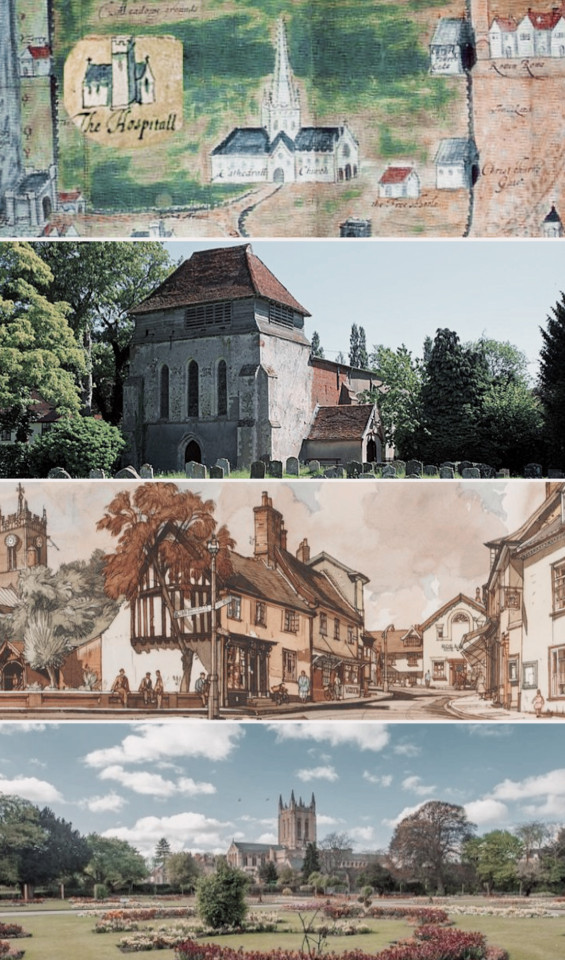



⋆ William, The Conqueror to Prince George of Wales ⋆
⤜ William I ia Prince George's 28th Great-Grandfather via his mother's paternal line.
William I of England
Henry I of England
Empress Matilda
Henry II of England
John of England
Henry III of England
Edmund, Earl of Lancaster
Henry III, King of England
Henry, IIIrd Earl of Leicester and Lancaster
Sir Henry Percy, Ist Earl of Northumberland
Mary of Lancaster, Baroness Percy
Sir Henry Percy
Sir Henry Percy, IInd Earl of Northumberland
Sir Henry Percy, IIIrd Earl of Northumberland
Lady Margaret Percy
Agnes Gascoigne
William Fairfax
John Fairfax, Master of the Great Hospital
Rev. Benjamin Fairfax, Preacher at Rumburgh Church
Benjamin Fairfax
Sarah Fairfax
Philip Meadows, Mayor of Norwich
Sarah Meadows
Thomas Martineau
Frances Elizabeth Greenhow
Francis Martineau Lupton
Olive Christina Lupton
Peter Francis Middleton
Michael Francis Middleton
Catherine Elizabeth, The Princess of Wales
Prince George Alexander Louis of Wales
#royal line from william i#british royal family#british royals#royalty#royals#brf#george's 10th birthday#happy birthday george#my edit#history#william the conqueror#house of lancaster#house of plantagenet#empress matilda#princess of wales#princess catherine#duchess of cambridge#catherine middleton#british royalty#kate middleton#royal#royaltyedit#royalty edit#historical royals#21072023
39 notes
·
View notes
Text
E3 now. "She is still crying. When will she ever stop?" Please, this is Marianne we're talking about -- she'll cry until she's dehydrated, drink some water, then the cycle will repeat. :P
Mrs. Dashwood has no backbone, honestly. Elinor is the parent in this family, not her, and frankly, that's a toxic arrangement. Elinor shouldn't be the one to keep the family above water and out of scandal. Yes, Mrs. D's in mourning BUT SO IS ELINOR. Honestly, I wouldn't be surprised if Elinor was the parent even before Mr. Dashwood died.
Can someone PLEASE buy the Dashwood ladies a spyglass so they'll know who a visitor is before they actually arrive and not get their damn hopes up (looking at you, Marianne)?
Edward's back. He addresses the girls as "Miss Marianne, Miss Elinor." Excuse you, Ferrars, that's "Miss Marianne, MISS DASHWOOD" to you. Give Elinor the respect she's due as the oldest.
"Dear, dear Norland." Marianne, get over it. She's still acting like Norland is sentient. I get that's she's *sensitive* and a capital-R Romantic, but this is getting ridiculous.
Ugh, the lock of hair. I believe '95 leaves out that detail entirely. Marianne and her overactive imagination. At least Elinor's sensible enough to know it's not hers.
Sir John invites Edward to a party at his place and in practically the same breath he mentions the Steele girls. Edward's big secret is taking away even momentary happiness.
This Charlotte Palmer is sweet and silly, just like she should be. Meanwhile, her husband reminds me of '08 -- boring. Where's '95's sarcasm? Lady Middleton's looking down at the Steele girls for their upbringing. Bitch. Ah, Mr. Palmer does have more to say. He's crosser than '95. Dude, I seriously doubt she was the only eligible woman when you were wife-hunting. You should've married someone more your type, so don't be mad at her for your blunder.
At least Charlotte is enjoying her marriage. I guess "asshole" is her type.
Oh wow, Lucy's a bitch. Claws in, girl, you just met Elinor. Is it in the book that Lucy is fond of yellow? '24 also has a pretty yellow dress.
You can tell Anne and Mrs. Jennings are related.
Marianne, at least put on a smile when you're at a party and asked to dance by your host. She may think emotions are everything, but she should be able to fake some once in a while.
Anne has no idea she's making things super awkward for Elinor and Lucy, for slightly different reasons. But then, I get the feeling Anne making things unwittingly awkward is a constant in her life.
Lucy's no fool, she knows Elinor has feelings for Edward, so she's playing all her cards at once -- secret longtime engagement, "thinks of you and Marianne as his sisters," "you don't know him like I do," "don't tell anyone." I hear the book ends with Lucy and Robert making each other miserable. No one deserves a bad marriage more than this bitch.
Wait, Lucy is okay with Edward becoming a clergyman? I guess she assumes that as long as he's on his mother's good side, he'll get the money no matter what. Can you imagine this woman as a clergyman's wife?
Elinor's putting Mrs. Jennings down? She's giving you a Season, her son-in-law is letting you stay in his cottage, show at least a little gratitude, girl.
"I would put up with any unpleasantness to go to London, and I shall." Marianne, are you threatening your sister? Well, at least it's better than sulking.
At least Elinor and Mrs. Dashwood are both well aware why Marianne's eager to leave -- Willoughby. I wish Mrs. D wasn't so eager to push her into his arms. But at least she's doing it because it would make Marianne happy, not just to have a daughter married. *side-eyes Mrs. Bennet*
10 notes
·
View notes
Text
Colonel Brandon is not stoic or reserved
Stoic: a person who has great self-control and doesn't let themself be guided or carried away by their feelings.
Reserved: a person who keeps silent or says very little.
So, let's do this (hopefully) once and for all: who is colonel Brandon?
The first bit of important context to remember is that Sense and Sensibility was in origin, an epistolary novel, and that even more than Pride and Prejudice and other Austen novels, free indirect speech reigns supreme here; how characters think of each other doesn't necessarily line up with what the characters show themselves to be, and sometimes an opinion will evolve throughout the book.
Our first introduction to colonel Brandon is through the eyes of sir John Middleton: he describes him as "neither very young nor very gay."; the first impression the Dashwoods make of him is that he is "silent and grave", "his face was not handsome, his countenance was sensible, and his address was particularly gentlemanlike"; Marianne and Margaret in particular see him as "an absolute old bachelor".
That very evening he listens to Marianne play with attention, but without raptures; Marianne sees this as a sign of his having outlived sensibility, Mrs Jennings as a clear sign of his being smitten with her playing, and consequently, with her. The same action is being read by two characters in incongrous ways. What he specifically thought or felt from his pov, we do not know.
So Mrs Jennings starts her teasing of them both, which is implied to be conducted when they aren't together: "At the park she laughed at the colonel, and in the cottage at Marianne." Brandon's reaction to this regarding himself is probably, perfect indifference.
Time passes, Marianne has her fall, and sir John gives the opinion that Brandon will be jealous, as he is "quite smitten already". This is sir John's opinion, but is it the truth? We are never shown Brandon behaving jealously, and his feelings towards Marianne only begin to be apparent to Elinor when a little time has passed and everyone has moved on: "the raillery which the other had incurred before any partiality arose, was removed when his feelings began really to call for the ridicule so justly annexed to sensibility." Elinor thinks there is opposition between Brandon and Marianne's characters, as he appears to her silent, grave, and reserved, but she also thinks that this is not his natural disposition: "his reserve appeared rather the result of some oppression of spirits than of any natural gloominess of temper.".
You'd say "well, there you have it! That's how he is described in the book!" but then as Elinor debates over Brandon with Marianne and Willoughby, we discover she is the one that has been seeking to chat with him, and that all the subjects they have talked about are rather technical: "I have found him capable of giving me much information on various subjects; and he has always answered my inquiries with readiness of good-breeding and good nature.” He clearly is pleased to talk to Elinor, and talk extensively about whatever she asks. So... silent? doesn't seem like it.
Marianne, who at this point apparently hasn't had any of the sort of conversation Elinor has had with him (and so Elinor tells her, that her opinions are based on her own imagination) says "that he has neither genius, taste, nor spirit. That his understanding has no brilliancy, his feelings no ardour, and his voice no expression." In Willoughby's company, she has lost her respect and compassion towards Brandon; this description is an echo of Willoughby's feelings towards him, for which he gives no reasonable explanation ("he threatened me with rain when I wanted it to be fine; he has found fault with the hanging of my curricle, and I cannot persuade him to buy my brown mare.").
Till this point we have never personally seen him talk; the first time we do, is an evening at the park, there's dancing going on and Elinor and him are sitting close, watching the dancers in silence. This time it is he who opens the conversation instead of Elinor, and what does he want to talk about? Marianne's thoughts about second attachments. He's thinking about what would she think of his now having fallen in love again; he's thinking if an allowance can be made for his own situation, where his first love was frustrated without fault of his own or his beloved. Seeing Willoughby and Marianne together makes him remember himself and Eliza when they were younger (rather than make him jealous, as sir John would say). He's thinking all of this out loud with Elinor, and naturally starts to explain himself, when he realizes some of the story isn't really his to tell freely to a stranger, and so he stops. In the middle, he also defends Marianne's sensibility, and while he acknowledges it is extreme, he cannot agree with Elinor that a complete change of ways is desirable.
This is not what reserve and gravity look like at all. It may be that Elinor has been led by sir John's first description, it may be that she set the tone of all their previous conversations, it may be that, as he is the only agreeable person around her, she has projected some of her own character onto him, it may be a bit of each, but her description of him does not match what we see here. Does that change later on?
Next time we hear of him, he's joining lady Middleton in talking about the weather when Margaret starts talking about Edward, as he is "on every occasion mindful of the feelings of others". That same day the party to go to Whitwell is formed (spontaneously, apparently, as sir John makes parties to go there twice a year) for the next day, when Brandon receives the mysterious letter. How does he react to it? upon seeing the address, he changes color and leaves the room before opening it. This is not what stoicism looks like.
He refuses to tell what his errand is, apologizes to everyone and specially to lady Middleton, asks Elinor if he'll see them in London, bows to Marianne and leaves. His not telling them is part of the mystery that makes the plotline, but also you don't need to be particularly reserved to avoid telling a party of people (including the Careys, two complete strangers) that your missing ward has turned up, pregnant. If there was any doubt that Marianne, when with Willoughby, thinks as he does, she agrees with him that Brandon invented the whole affair to avoid going to Whitwell.
Next time we hear about him, is from Mrs Palmer. She's, probably, the most unreliable of the characters, and most of the humor of her character comes from that: she tells Elinor that Brandon confirmed to her that Marianne and Willoughby are engaged, but when pressed she says that he didn't say anything but looked as if he knew it to be true (which means it is more likely that he was given the impression from her rather than the other way around). She also calls Brandon "grave and dull" right after calling him "charming". She tells Elinor he wanted to marry her, to then confess it was something sir John seemed to want, and that Brandon had never shown her any particular signs of affection and that he hadn't seen her more than twice at that point. Nothing to be learned here, but it is interesting that Brandon, hinted here and in his conversation with Elinor about second attachments, has not sought marriage after he lost Eliza; clearly the practicality or convenience of marriage for the sake of home and heir was not something on his mind; he's not pragmatic, not even to the level of Wenthworth and his boasts that any woman of suitable age would do for him.
He then goes on visiting them, to talk to Elinor and look at Marianne; Elinor guesses it's just his growing love for Marianne, and so do we because we don't know what he knows yet. He's still deciding, and does go back and forth between attempting to start saying what he knows, and silencing himself. His saying that he has no right or chance of succeeding carries a double meaning we will only understand later. Under the guise of """revealing""" his feelings for Marianne, he's trying to gauge how his revelation of Willoughby's character would be taken and if it would be believed or not, if it can be useful or not. He decides on the negative, but even then he cannot help but hint at what he knows, as he says "in a voice of emotion" “to your sister I wish all imaginable happiness; to Willoughby that he may endeavour to deserve her".
Brandon shows up next to visit Mrs Jennings, Elinor and Marianne, once they have arrived in London. This is the section where we see the most of him. Elinor watches him see Marianne leave the room, and to her he seems astonished and concerned, so much so he outright asks if Marianne is ill, before even greeting Elinor properly. They make small talk but they are both distracted by things they cannot talk about to each other. He replies to Mrs Jennings inquiries with his "accustomary mildness", and grows even more thoughtful and silent when Marianne comes in again, and soon afterwards, he leaves. All these reactions are manifest, there's no concealment. In retrospective, we know at that point he had dueled Willoughby, and was trying to decide if he should tell them about the affair or not.
When everything comes crashing down, Mrs Jennings tells Elinor that Brandon will have Marianne now, that they will be married by midsummer, and that he will chuckle when he hears the news. Yet another case of Mrs Jennings not knowing what she's talking about XD That afternoon Brandon shows up, she thinks he doesn't know what happened, but Elinor thinks he does, and she's right. He asks Elinor about how Marianne is feeling and what does she think of the affair, and he's still serious and thoughtful; he's still thinking what to do, and will leave this time without telling what he knows.
When he does finally tell Elinor, he still has scruples of conscience about his own motives: "where so many hours have been spent in convincing myself that I am right, is there not some reason to fear I may be wrong?" (which reinforces the idea that his asking Elinor about the engagement was more about what he knew of Willoughby than about his chance at pursuing Marianne being lost, besides the obvious fact that he kept away from Barton even after young Eliza's affair was completely resolved).
He tells his story to Elinor (including the attempted elopement with Eliza, his leaving to try and protect her, his looking for her until he found her, and his taking care of her and her child, and how the whole thing haunts him so many years later. This is not what an unromantic, pragmatic, stoic character does), and these are the things he does while at it: "sighing heavily" "He stopt a moment for recollection, and then, with another sigh, went on." "he continued, in a voice of great agitation" "He could say no more, and rising hastily walked for a few minutes about the room." "He saw her concern, and coming to her, took her hand, pressed it, and kissed it with grateful respect. A few minutes more of silent exertion enabled him to proceed with composure." "Again he stopped to recover himself". Nothing about this, again, shows stoicism, reserve, or lack of tender, passionate feelings.
By the end of his tale, as he tells Elinor of the duel, she "sighed over the fancied necessity of this; but to a man and a soldier she presumed not to censure it." She's now pretty much rolling her eyes at what she thinks is excess; her opinion on Brandon is changing.
Brandon keeps on visiting them in London, making "delicate, unobtrusive enquiries"; he is invited by John Dashwood and attends the dinner at Mrs Ferrars because he's happy to be where the Miss Dashwoods are; he compliments Elinor's work, and when Marianne defends her, he "noticed only what was amiable in it, the affectionate heart which could not bear to see a sister slighted in the smallest point.", while Elinor (the sensible character token) is mortified by Marianne's rudeness. When she starts crying, he instinctively goes to them. Brandon is not being sensible or pragmatic here.
Next time we see him, he comes to offer the Delaford parsonage to Edward, and engage Elinor's help so that Edward's feelings are spared; as we were told before, he's always mindful of the feelings of others. His own feelings about the whole affair he expresses with "great compassion" as “The cruelty, the impolitic cruelty,” he replied, with great feeling, “of dividing, or attempting to divide, two young people long attached to each other, is terrible." Brandon is not being sensible, stoic or pragmatic here. John Dashwood says later on that a sensible person would have sold the living, which is very fitting to his own sense of greed, but it also gives greater relief to the fact that Brandon did this for a stranger out of sympathy with his situation.
By the time Elinor and Marianne are at Cleveland, Elinor's judgement of Brandon has been completely transformed since her first impressions of him: "she watched his eyes, while Mrs. Jennings thought only of his behaviour;—and while his looks of anxious solicitude on Marianne’s feeling, in her head and throat, the beginning of a heavy cold, because unexpressed by words, entirely escaped the latter lady’s observation;—she could discover in them the quick feelings, and needless alarm of a lover." (as a side note, this is yet another case of Elinor being wrong, as Marianne does fall dangerously ill soon later).
When Marianne finally falls ill, he makes great exertion in offering to go, but is clearly relieved when he's asked to stay; "He tried to reason himself out of fears, which the different judgment of the apothecary seemed to render absurd; but the many hours of each day in which he was left entirely alone, were but too favourable for the admission of every melancholy idea, and he could not expel from his mind the persuasion that he should see Marianne no more."; he makes haste to go to Mrs Dashwood as soon as it is suggested, and he says goodbye to Elinor "pressing her hand with a look of solemnity, and a few words spoken too low to reach her ear". This is not what a stoic, dour character does.
When Mrs Dashwood tells Elinor of Brandon communicating his love for Marianne to her, we cannot be certain how and how much he said; Mrs Dashwood says that he loved her since the moment he first saw her, but we know that was not the case: she's not a reliable narrator. Elinor, despite having heard and seen what she has, still tells herself that Marianne could not be happy with Brandon considering their ages (fair), their feelings (fair), and their characters (not so fair); she's also not completely reliable, because, as the end of the chapter tells, Marianne being at Delaford would force her to go there where Edward would be with Lucy.
We are given a contrast of what Brandon thinks of the case ("He thinks Marianne’s affection too deeply rooted for any change in it under a great length of time, and even supposing her heart again free, is too diffident of himself to believe, that with such a difference of age and disposition he could ever attach her." - he doesn't mean to propose and refuses to accept any encouragement from Mrs Dashwood on that front; that's why I say that he would not have asked if Marianne herself had not provided heavy encouragement) and what Mrs Dashwood thinks of the case (his disposition, I am well convinced, is exactly the very one to make your sister happy. And his person, his manners too, are all in his favour... the Colonel’s manners are not only more pleasing to me than Willoughby’s ever were, but they are of a kind I well know to be more solidly attaching to Marianne. Their gentleness, their genuine attention to other people, and their manly unstudied simplicity is much more accordant with her real disposition, than the liveliness, often artificial, and often ill-timed of the other."). It is for the reader to make up their mind, but ultimately we know Mrs Dashwood tends to be too sanguine , and Brandon too melancholy: the truth likely lies on a middle ground, which fits the ending of the novel. It takes Marianne a time to give up Willoughby and another time to love Brandon, but she does in the end and is truly happy with him.
Similarly, when Marianne asks him to visit her, Elinor thinks he's remembering Eliza and therefore very melancholy, while Mrs Dashwood thinks he just looks in love. How he really feels, we never get to know. Elinor has a personal motivation to believe a match won't happen, Mrs Dashwood has a personal motivation to believe the opposite (it is worth noticing that once Elinor was engaged to Edward, all her aprehensions about Brandon and Marianne not being suited for each other vanished).
Once the Dashwoods leave for Barton, he says he'll visit in a few weeks and goes to Delaford, where he stays until Mrs Dashwood's insistence by letter makes him visit. In the meantime, he "in his evening hours at least, he had little to do but to calculate the disproportion between thirty-six and seventeen, brought him to Barton in a temper of mind which needed all the improvement in Marianne’s looks, all the kindness of her welcome, and all the encouragement of her mother’s language, to make it cheerful." This is an emotional man who also very much respects the space and the feelings of the woman he loves, and is aware of the difficulties.
All that we hear of him after this is his leaving with Edward to prepare the parsonage, his efforts to make it comfortable for Elinor, and that once married to Marianne "her regard and her society restored his mind to animation, and his spirits to cheerfulness."; his gloominess and melancholy were as much part of his character as Marianne's were when she was grieving the loss of Willoughby; the text itself connects their life journeys in that parallel: "and that other, a man who had suffered no less than herself under the event of a former attachment".
TL; DR (it is, indeed, a very long post, I'm sorry but I wanted to be thorough): Brandon's actions and speeches show him to be emotional, passionate, sensitive, and emotionally open and demonstrative; whenever he is called grave, silent, reserved, etc, it comes from a place of a character not knowing him well yet, having a much more boisterous personality than him, projecting onto him, or his very own melancholy talking. Readers should keep in mind the extensive use of indirect free speech that Austen does in this novel.
#Jane Austen#Sense and Sensibility#Colonel Brandon#Meta#It is long#but the belief is so deeply rooted in fandom that it really takes all this work and evidence I think#It is unlikely that the people I would like the most to read it will#But I have given myself satisfaction at least#I think
172 notes
·
View notes